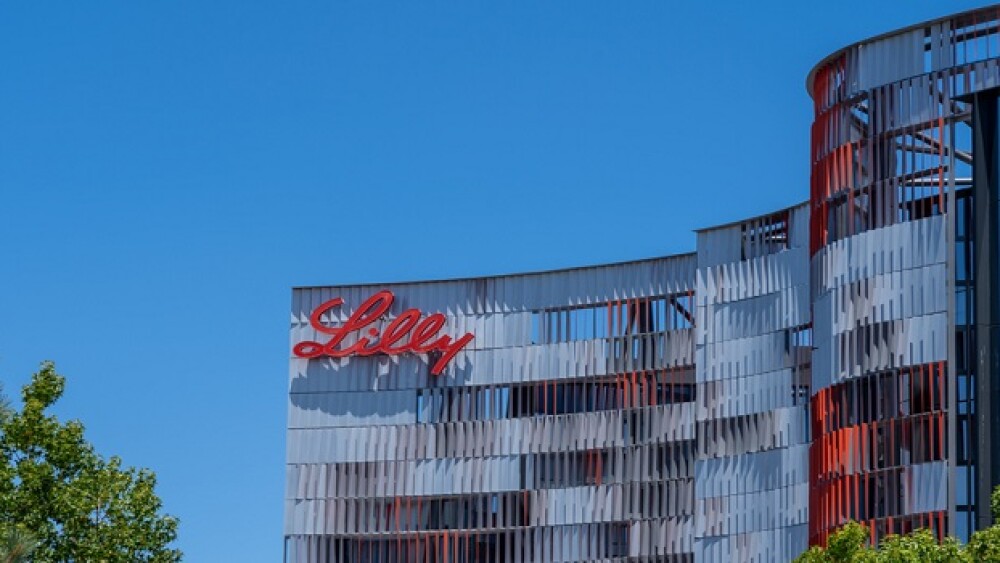Following an FDA rejection and a previous discontinuation in psoriasis, Eli Lilly’s anti-IL-23 antibody has finally won an approval in ulcerative colitis, joining a crowded inflammatory bowel disease market.
Pictured: Eli Lilly Biotechnology Center in California/iStock, hapabapa
The FDA on Thursday approved Eli Lilly’s first-in-class antibody mirikizumab for the treatment for adults with moderately to severely active ulcerative colitis. Mirikizumab, which will be sold under the brand name Omvoh, joins a crowded inflammatory bowel disease market.
Thursday’s approval marks the end of what has been a difficult regulatory road for mirikizumab. In April 2023, the molecule was met with a rejection from the FDA due to manufacturing concerns. However, the regulator found no issues with the treatment’s safety, proposed label or clinical data package.
Two years earlier, during its first-quarter financial report for 2021, Lilly announced that it was abandoning its plans to submit an application for mirikizumab in psoriasis, pointing to high levels of competition in the market. Mirikizumab at the time had just bested Novartis’ Cosentyx in the Phase III OASIS-2 study and was poised for a psoriasis filing.
Patrik Jonsson, president of Lilly USA, in a statement called Thursday’s approval a “significant moment” for the pharma’s immunology business and growing portfolio in this area. Omvoh is Lilly’s first approval in the inflammatory bowel disease space.
Omvoh is a humanized monoclonal antibody that binds to the IL-23 cytokine and blocks the IL-23 pathway, both of which play a central pro-inflammatory role in various auto-immune disorders including rheumatoid arthritis, psoriasis and inflammatory bowel diseases. It is currently the only FDA-approved ulcerative colitis (UC) treatment that selectively targets the p19 subunit of IL-23.
In its Biologics License Application for mirikizumab, Lilly presented data from the LUCENT clinical trial program, which included two Phase III randomized, double-blinded and placebo-controlled studies. The first—dubbed UC-1—was a 12-week induction study, while the second trial—UC-2—covered a 40-week induction period.
Together, these studies showed that Omvoh could induce high rates of clinical response and remission after 12 weeks of treatment, and that these effects were durable up to one year. Omvoh likewise resulted in rapid symptomatic improvements, including rectal bleeding and stool frequency. The LUCENT program also found a favorable tolerability profile for the therapy.
Omvoh’s approved label does not carry a boxed warning but comes with precautions against an increased risk of infections, hypersensitivity reactions and hepatotoxicity. The drug should also not be administered to patients with active tuberculosis. The treatment is given as a 300-mg intravenous infusion for induction followed by a 200-mg subcutaneous injection for maintenance.
Lilly expects to make Omvoh available in the U.S. in the coming weeks, according to Thursday’s announcement.
Tristan Manalac is an independent science writer based in Metro Manila, Philippines. He can be reached at tristan@tristanmanalac.com or tristan.manalac@biospace.com.






